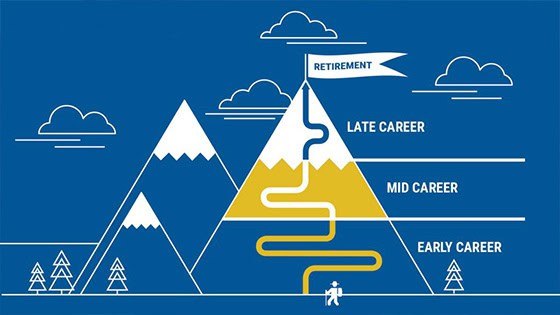
In America, the concept of “retirement” is relatively new. As recently as the late 1800s, most people either worked until they were physically incapable or until they died. Our modern understanding of retirement began to take shape when the Social Security Act was signed into law in 1935, setting the age of retirement at 65. Back then, the average life expectancy in the United States was 58 years for men, and 62 for women. Now, the average life expectancy in the U.S. is around 78 years, and if you reach 70, you have a good chance of living into your late 80’s or longer.
Now, instead of a retirement that might last a few years, we need to plan for a few decades. Our increased lifespans create obvious financial challenges since we should plan to support ourselves for a longer period of time, but the ramifications go beyond the financial. There are many factors that contribute to a successful retirement that have nothing to do with money. Given the growing number of years Americans can expect to live as a retiree, it’s time to think more broadly about what we need to do to set ourselves up for a successful retirement.
The Secret to Longevity
Many researchers have studied the people of Okinawa to learn more about the secret to living a long and healthy life. Okinawa is a collection of islands that is part of Japan, and it holds the world record for life expectancy: 90 years for women, 84 years for men, and an astonishingly high percentage of people over 100 years old. Obviously, they’re doing something right. A lot of people give credit to the Okinawan diet, and I’m sure that’s an important factor, but I would point to something else.
The language spoken on Okinawa is a little different from standard Japanese, having been influenced by its traditional native languages. For instance, Okinawans don’t have a word for “retirement” as we understand it in the U.S. The concept of stepping away from work and adopting a life of leisure simply doesn’t exist in the Okinawan vocabulary.
A word they do have is “ikigai” (pronounced ee – key – guy) which means having a direction or purpose in life. Ikigai isn’t necessarily the thing you do that earns you money. It’s a mix of what you’re good at, what you love and what the world needs. Researchers studying the Okinawan people have found that having a sense of purpose contributed to their good health and longer lives. Individuals without ikigai, who didn’t feel they had a reason for living, had an increased risk of mortality.
Find Your Purpose
When I meet with clients who are considering retirement, I ask them “Why now? What’s inspiring you to retire?” Often, they’ll say things like “I’m sick of commuting,” or “I’m tired of my boss,” or “I want to get away from all the stress.” These are all valid reasons for not wanting to work anymore, but it’s important to remember that you’re not just retiring from your work, you’re retiring to something else. That is where our ikigai becomes our North Star. We need to identify the thing that helps us wake up with enthusiasm each morning, that informs how we spend our time, and gives us a sense of fulfilment.
Successful Retirees Have Seven Things in Common
Having a sense of purpose is one of seven traits shared by successful retirees. You can learn about this one and the other six by viewing my webinar, The Seven Things Successful Retirees Have in Common. The webinar is part of TPC’s series, Expedition to Retirement which brings together a diverse array of experts who help simplify and clarify the journey to retirement.
As our life expectancy grows, effective planning for retirement has never been more important. Our webinar series shows it can also be fun. If you have questions about any of the webinars, please, contact your TPC team.


